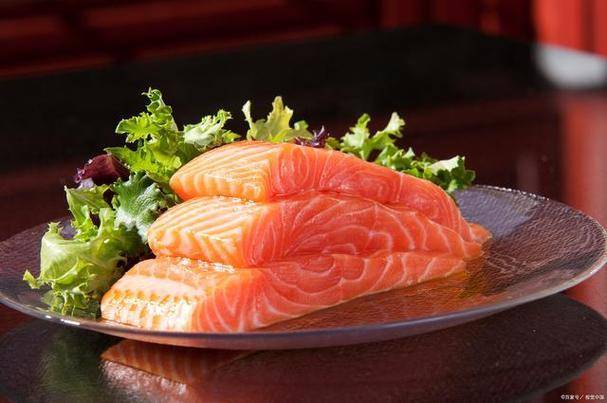Cerebral infarction, also known as stroke or cerebrovascular accident, is caused by obstruction of blood supply, ischemia, and hypoxia leading to ischemic necrosis or softening of localized brain tissue. For patients with cerebral infarction, softening the blood vessels is crucial for preventing recurrent episodes. In addition to medication, a proper diet can also be very helpful. So, what foods should cerebral infarction patients eat to soften the blood vessels?
Unsaturated fatty acids have the function of reducing cholesterol and preventing thrombosis, which helps in softening the blood vessels. Patients with cerebral infarction should consume foods rich in unsaturated fatty acids in their daily diet, such as:
Deep-sea fish: like salmon, tuna, mackerel, which are rich in omega-3 unsaturated fatty acids, aiding in lowering lipid levels and reducing the risk of arteriosclerosis.
Nuts: walnuts, almonds, cashews, and other nuts also contain abundant unsaturated fatty acids. Moderate consumption helps in maintaining cardiovascular health.
Plant oils: such as olive oil, flaxseed oil, walnut oil, which are rich in unsaturated fatty acids and can be used for cooking or salads.
Antioxidants can eliminate free radicals, reduce vascular damage, and have a positive effect on softening blood vessels. Cerebral infarction patients should consume the following antioxidant-rich foods:
Fresh vegetables: leafy greens like spinach, kale, broccoli, as well as carrots, tomatoes, eggplants, rich in vitamin C, vitamin E, and other antioxidants.
Fruits: apples, oranges, kiwis, containing abundant antioxidants, help in protecting blood vessels.
Legumes: soybeans, black beans, red beans, rich in antioxidants and plant proteins, beneficial for vascular health.
Dietary fiber helps in lowering cholesterol, improving intestinal function, and has some preventive effects on cerebral infarction. Patients should consume the following fiber-rich foods:
Whole grains: oats, brown rice, whole wheat bread, rich in dietary fiber, which helps in maintaining intestinal health.
Vegetables and fruits: as mentioned above, not only are rich in antioxidants, but also contain abundant dietary fiber, helping in reducing cholesterol.
Legumes and nuts: rich in dietary fiber, moderate consumption improves intestinal function, reducing the risk of cardiovascular diseases.
Trace elements like potassium and magnesium help in regulating blood pressure, maintaining heart function, and have a positive preventive effect on cerebral infarction for patients. The following foods are rich in these trace elements:
Leafy green vegetables: spinach, rapeseed, bok choy, rich in potassium, magnesium, and other trace elements, beneficial for vascular health.
Nuts and seeds: such as pumpkin seeds, sunflower seeds, almonds, containing abundant potassium, magnesium, and other trace elements, moderate consumption aids in preventing cerebral infarction.
Fruits: bananas, oranges, peaches, abundant in potassium, help in blood pressure regulation, maintaining cardiovascular health.
High-quality proteins help in maintaining the elasticity and function of blood vessels, beneficial for patients with cerebral infarction. Patients can consume high-quality proteins from the following foods:
Lean meats: like chicken breast, lean beef, lean pork, rich in high-quality proteins, but moderation is necessary to avoid excessive fat intake.
Fish: as mentioned earlier, deep-sea fish not only are rich in unsaturated fatty acids but also contain abundant high-quality proteins, beneficial for patients with cerebral infarction.


